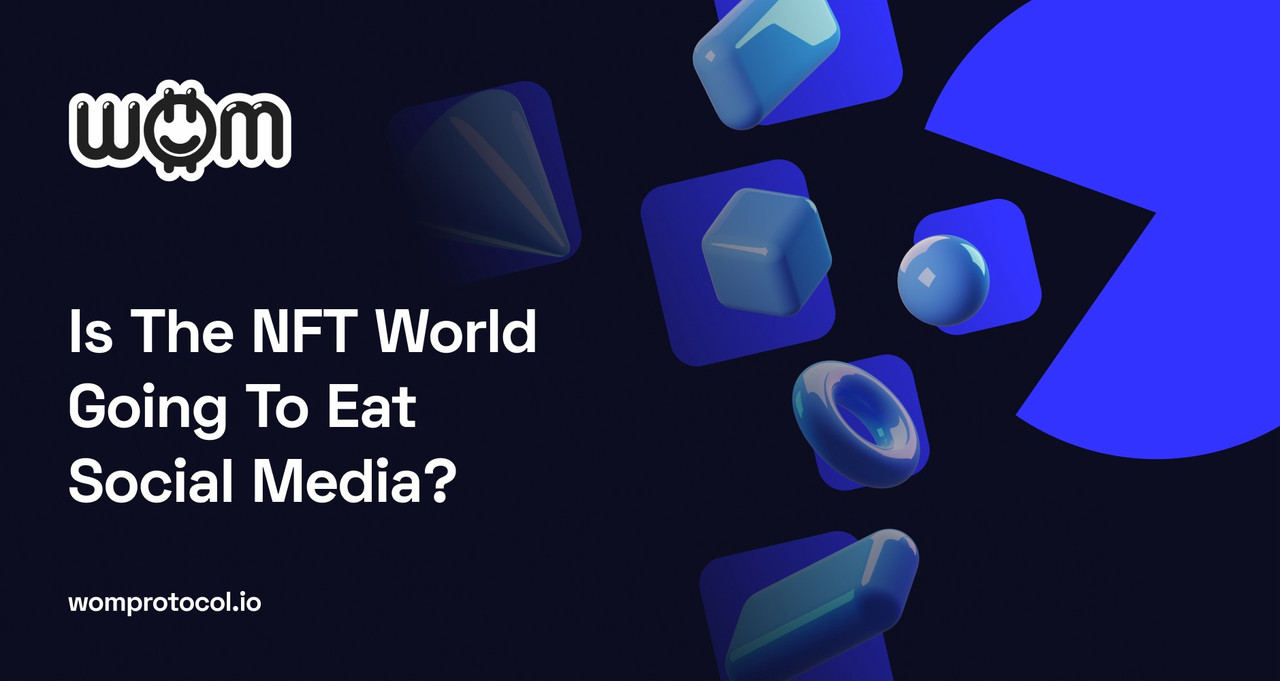emmaglory5
Newbie

NFTs are having a moment. In mainstream media they are being popularized as a means of trading collectibles and digital artworks. NFTs, or non-fungible tokens, are essentially smart contracts, converted into tokens, that confirm the ownership of a digital asset. Unlike Bitcoin or Ethereum, or actually any currency be it USD or EUR, every NFT’s value is unique.
By now most people have heard wild stories about single NFTs selling for as much as $69m and are probably wondering why collectors are prepared to pay such incomprehensible sums to own digital artworks that probably wouldn’t get many art critics excited.
The Daily Show’s Ronny Chieng doesn’t hold back in his interviews with Mark Cuban and digital artist Mike Winkelmann concluding that NFTs are overhyped — regardless, a heady mix of desirability and scarcity have clearly created a valuable NFT market.
Polarized as the NFT debate might be, it’s currently based on a very one-dimensional view of precisely how NFTs can be implemented. Pop culture has painted them as collectibles, but arguably their use cases are far broader and their potential to disrupt entire industries may well be potent.
One case in point is the social media industry and Alex Masmej, co-founder of Showtime, who goes as far as to claim that NFTs are going to eat social media.
It’s a bold claim, but what exactly do NFTs have to do with social media and what makes them so disruptive? Here are two NFT use cases in social media to better understand and explore Masmej’s statement.
Use Case #1: BitClout
Social networks have fallen from grace in recent years as their one-sided monetization models and exploitative data practices have entered the public psyche. To bring the balance of power back, decentralized blockchain technologies have emerged as a means of keeping data at the device level and distributing it away from central intermediaries.
In the world of social media this is creating better ways for creators and communities to gain greater control and, simply put, decentralize social media.
One example of this is BitClout. The social network launched in March and though the developers behind it have remained anonymous (the CEO calls themselves Diamondhands) they claim that BitClout is not a company, but a proof-of-work custom blockchain.
“Its architecture is similar to Bitcoin, only it can support complex social network data like posts, profiles, follows, speculation features, and much more at significantly higher throughput and scale. Like Bitcoin, BitClout is a fully open-source project and there is no company behind it — it’s just coins and code.”
The user experience is unashamedly Twitter-like — people’s Twitter profiles have been scraped and replicated on BitClout. However, unlike other platforms where the currency is content, here the tradable currency is the creator themselves and their influence — and it’s something that creators and their fans alike can own and monetize.
This is where NFTs play their part. NFTs supply BitClout with Creator Coins, which represent popular creators and influencers all the way from Joe Biden, to Elon Musk, to Justin Bieber, and the value of the Creator Coin, which users of the service can buy and sell, rises and falls with the person’s popularity. Users can therefore speculate not on an individual piece of content and its longevity as something desirable, but rather the creator and their long-term impact.
Not all creators whose profiles have been scraped onto BitClout have activated their accounts (Musk included) although this doesn’t limit people’s ability to speculate on the associated coins. Founder anonymity, unapproved Twitter profile scraping and speculation without the creator’s permission has led some to question BitClout as a scam.
To others, the controversy surrounding BitClout has only added to its allure and accelerated its growth. As of last month more than $225 million Bitcoin had already flowed into BitClout, and high profile crypto venture capitalists, including Andreessen Horowitz, Sequoia and Social Capital, have backed BitClout with more than $100m. Joey Krug, co-chief investment officer of Pantera Capital, values BitClout at more than $1bn and NYMag’s Jen Wieczner, calls BitClout:
“A way to finally capitalize on the viral power of Twitter, where virtually anyone can have skin in the game; if it catches on, it could upend social media as we know it.”
Use Case #2: Showtime
On May 5th Showtime introduced itself as a brand new user-owned NFT social network. In other words the creators, not the platform, will be the ones to control, govern and profit from the content.
The platform will be free of Web2 advertising and has raised $7.8m in a funding round led by Paradigm. Only the NFTs on Showtime are currently decentralized, though its ultimate goal is to become a decentralized social media protocol.
In a recent podcast with Software Engineering Daily, Showtime co-founder & CEO, Alex Masmej, describes Showtime as a sort of Instagram for NFTs, where people can browse and sell digital art, but with all of the social aspects of a social network, such as having a profile where all NFT artworks can be displayed in one portfolio, along with features such as connecting, following, commenting and sharing so that it isn’t purely a transactional space.
Masmej predicts that the forthcoming scaling of Ethereum this year will act as a catalyst to an “explosion” in NFT use cases:
“So that explosion will lead to any kind of social media, not simply digital art, but any kinds of videos, photos, memes will become NFTs, and that’s exciting because basically like this will disrupt Instagram and other social media.”
He also states that Showtime has future plans to enable people to tokenize their digital identities, in a similar way to his own self-tokenization in 2020, where $ALEX token holders could vote on his life choices (e.g. diet and exercise).
NFT Social Networks Bite Back
Whether people will want to start giving away the ownership of their lives and life choices has yet to be seen, although perhaps making money from absolving responsibility for one’s actions is actually quite appealing.
What is clear is that both the BitClout and Showtime examples offer a glimpse into an emerging direction for NFT use cases that are already taking a big bite out of the current social networking space. And this is just the start.
We have some exciting NFT news of our own coming soon. Join the waitlist to stay informed.
*Read the legal disclaimer: https://womprotocol.io/disclaimer/





















